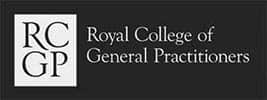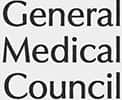
Getting enough sleep for muscle growth is essential if you’re a fitness enthusiast. But did you know that napping can also help you increase your muscle mass?
First off, let’s talk about sleep. Your body produces hormones crucial for muscle growth and repair when you’re asleep. This hormone helps rebuild damaged muscle tissue and stimulates the production of new muscle fibres.
If you’re not getting enough sleep, your muscles won’t have the opportunity to recover correctly, and this will limit growth.
But how much sleep do you actually need? The answer varies depending on your needs and lifestyle, but most adults generally need around seven to nine hours of sleep per night. However, you may need closer to nine hours of sleep if you’re trying to gain muscle or work out regularly to allow for proper muscle recovery.
It’s also important to note that sleep quality is just as important as quantity regarding growth hormone (GH) production. If you’re not getting enough deep, restful sleep, your body may be unable to produce enough growth hormone (GH) to support optimum muscle growth and repair. This is why it’s essential to have good sleep habits, such as avoiding drinks with caffeine or other stimulants, strenuous physical activities at least two hours before you plan to go to bed, and establishing a regular sleep routine.
Now, let’s talk about napping. While it may seem like napping is only for lazy Sunday afternoons, it can actually be helpful for muscle growth. When you nap, you allow your body to enter a deeper state of rest, which can help increase growth hormone production.
Deep sleep triggers the release of certain hormones, including growth hormone (GH), essential for muscle growth and repair. Plus, the body’s metabolic rate slows during deep sleep, and blood flow to the muscles increases. This allows for greater delivery of oxygen and nutrients to the muscles, promoting tissue repair and growth.
The time it takes for deep sleep to stimulate growth hormone (GH) production can vary from person to person. Typically, it takes around 90 minutes for the body to enter a deep sleep. The highest levels are typically released during deep sleep, particularly during the first few hours of the night. However, the exact timing and duration of growth hormone (GH) production can depend on various factors, including age, gender, and individual sleep patterns.
Napping can help reduce stress and inflammation, which can hinder muscle growth. Of course, it’s important to note that napping shouldn’t replace a good night’s sleep. When you consistently sleep for less than seven hours, you can not rely solely on naps to make up for it.
However, a short nap might be beneficial if you get enough sleep at night and still feel like you could use an extra boost. Still wondering if napping helps muscle growth? When you have not slept enough at night, then absolutely. Napping will help you to achieve bigger muscles.
So, how long should you nap for? Again, this will depend on your individual needs, but most experts recommend aiming for a nap that lasts between 20 to 30 minutes, increasing to 60 to 90 minutes if you are sleep deprived. This is long enough to allow your body to enter a deeper state of rest but not so long that you’ll wake up groggy and disoriented.
It’s also important to time your nap correctly. If you plan on working out later in the day, aim to take your nap at least 30 minutes beforehand. This will give you enough time to fully recover from the nap and improve your performance when you hit the gym.
Sleeping and napping are both important for muscle growth. They are even more critical for muscle growth if you don’t get enough sleep at night or wake up often.
Remember to keep your naps short and timed correctly, and you should start seeing the benefits!
Our human growth hormone (HGH) replacement therapy includes a one-hour consultation, full examination and comprehensive laboratory blood tests. If you want to know more about our HGH therapy, book a consultation to discuss how we can assist you.







